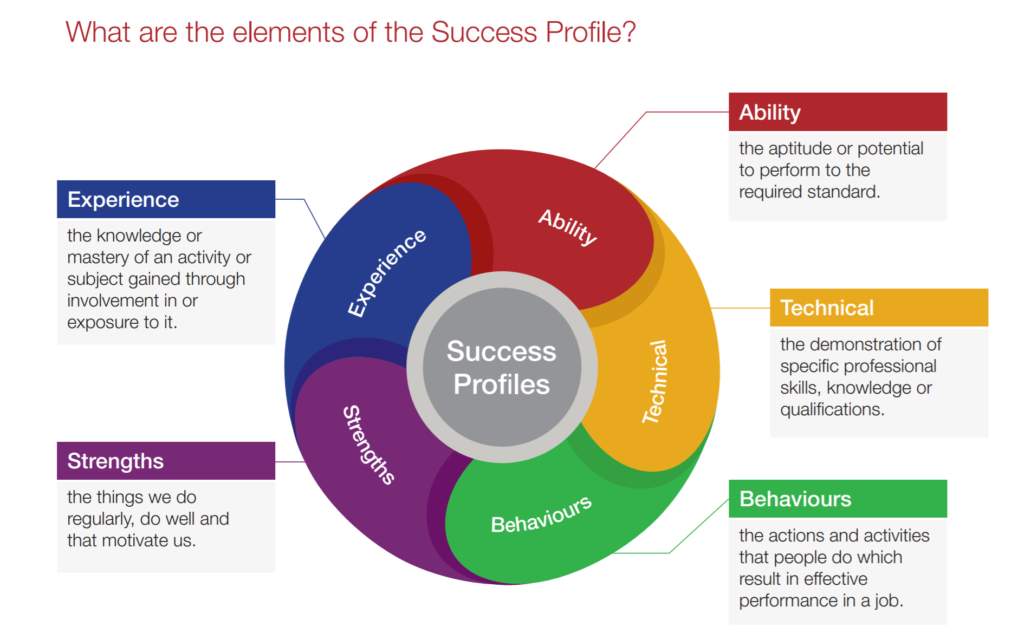Skills Profile
Manage your SKILLS, your ROLES, your WAY
Flexible work force solutions, matching employees to business skills gaps

The Value of
Your Skills in your business
Identifying skill gaps within our company and strategically sourcing the right talent has been a critical factor in driving business growth.
Leveraging both experienced professionals and ambitious individuals eager to learn and develop within our sector has provided significant business advantages. This dynamic and adaptable skill set enables us to respond effectively to customer needs, fostering continuous success.
We Build Lasting Flexible Relationships Between Candidates & Businesses
Business thrives on relationships—whether with employees, customers, partners, or stakeholders—each with unique dynamics that drive success and service delivery.
Skills, in every form, are the foundation of a successful business. They are the core assets that customers seek, and businesses depend on skilled employees to support and enhance these services. The ongoing exchange of skills is fundamental to modern business operations.
Today’s workforce is more skilled and adaptable than ever, requiring a recruitment approach that reflects this evolution. By identifying the specific skill needs of your business, you can strategically engage with the talent market, ensuring you secure the right expertise.
Whether on a temporary, full-time, or training basis, having access to the right skills is essential for business growth and agility in an ever-evolving marketplace.
Beyond technical and business expertise, soft skills play a crucial role in fostering a strong, productive, and collaborative workplace culture. Clearly defining the skills your business needs—or those you already have—enhances your ability to build and sustain a high-performing team with a cohesive and engaged culture.
Get in Touch
We’re a developing company with plans to structure the recruitment market. Changing the connection between the individuals, breaking down the hierarchical structure of employment and facilitating a flexible engagement process that optimises the working relationship through agility and transparency.
What we are looking for:
- Investment to develop the tools and services described
- Inspired inviduals to join the team
- Feedback - we embrace change and adpat to it
- Establish a credible online service
- A service that values the needs of the individual as much as the employer or business
Benefits
Whether its a digital front end developer you need, a plumber or skilled craftsman or you want help identifying the SKILLS that will actually accelerate your business. Let us take the strain and use our knowledge and experience to quickly get you the right job, role, staff member or employee.
A SKILLS profile CV puts you in the right frame of mind for your job search. If you look good documented then you’ll feel good about yourself and your your skills. If your head is in the right place, and you feel confident and your SKILLS will talk for themselves.
A SKILLS PROFILE gap is the difference between skills that employers want or need, and skills their employees have to offer. Conducting a skills gap analysis helps the business identify skills it needs to meet your business goals. It can also informs your employee training and hiring programs.
Companies train and develop their staff to fill open roles. Giving training to employees in skills a business would like to strengthen, for example using DevOps or Agile. The right training can help your business close gaps between current and desired skill levels.



What is a SKILLS PROFILE?
Skills Profile is a fundamental asset for the individual, start up, SME and global business alike.
Understanding your skills and realising your strengths and weaknesses ultimately makes your position as an employee or employer stronger, better equipped for the challenges ahead.
Your Individual profile
Your CV or curriculum vitae. A document or record that showcases your skills and experiences in and our of the work place.
The CV or skillsprofile has been the cornerstone of recruitment for many years and so its essential you have a strong CV that truly represents your skills and your capabilities
The Recruitment Profile
A technique of business leaders, HR departments and entrepreneurs to help prioritize their hiring needs is to maintain a skills profile.
Business have an operating model and goal and in order to achieve their BAU operations as well as strive for new ambitious goals they need to understand the SKILLS required.
Company Profile
A skills profile refers to a document that illustrates the most important skills that are required for the operation of the business and where skills gaps exist and therefore business risk. Along with highlighting where a firm’s most important skills and gaps exist, this profile normally explains how current skills gaps are being addressed.
Training Requirements
Highlighting the skills you have as well as the skills you don’t allows business managers to streamline and target training as well as the recruitment requirements.
Recruiting can potentially supply a whole range of skills and cultural changes that can contribute to the business. By Training you can enhance specific skills and capabilities.
ESCO
ESCO works as a dictionary, describing, identifying and classifying professional occupations and skills relevant for the EU labour market and education and training. Those concepts and the relationships between them can be understood by electronic systems, which allows different online platforms to use ESCO for services like matching jobseekers to jobs on the basis of their skills, suggesting trainings to people who want to reskill or upskill etc.
Skills-profile or CV?
Career contactors and job hunters worldwide have the challenge of standing out, being spotted in amongst all the other applicants. There are two approaches, the creative one, that’s not everyone’s forte and the structured one, matching skills requirements to candidate skills.
Each approach has its benefit but what is the overall effectiveness and efficiency for both sides of the relationship.

Elements of a Structured CV
Experience
The candidate’s professional history, including previous jobs, internships, volunteer work, and other relevant roles. It showcases the skills, responsibilities, and accomplishments gained over time, demonstrating a candidate’s qualifications and suitability for a particular role.
Strengths
key skills, abilities, and attributes that make a candidate well-suited for a role. These can include technical expertise, such as proficiency in industry-specific software or specialized knowledge, as well as soft skills like leadership, communication, and adaptability. Strengths also encompass core competencies such as problem-solving, strategic thinking, and the ability to work collaboratively.
Ability
The personal aptitude or skills refers to a candidate’s skills, competencies, and expertise that enable them to perform tasks effectively in a professional setting. It encompasses both hard skills (technical or job-specific knowledge) and soft skills (personal attributes like communication or leadership)
Technical
The specific professional
skills, knowledge or
qualifications that a applicable to a role or task. refers specific tools, technologies, or methodologies required for a job. These skills are often measurable, learned through training or experience, and typically associated with specialized fields such as IT, engineering, finance, or healthcare.
in Demand Skills
In Demand SOFT SKILLS
- Creativity
- Persuasion
- Collaboration
- Adaptability
- Emotional Intelligence

In Demand Skills
In Demand HARD SKILLS
- Blockchain
- Cloud computing
- Analytical reasoning
- Artificial Intelligence
- UX design
- Business Analysis
- Affiliate Marketing
- Sales
- Scientific computing
- Video Production
Business Stories
Since 2016, the Civil Service Workforce Plan has outlined five key areas which enable them to achieve their goals and support their workforce through profiling:
- Attracting and retaining people of talent and experience
- Building career paths
Developing world-class leaders - Being the most inclusive employer
- Developing cost effective and flexible reward structures
Contributing to the Civil Service, these priorities are critical to getting the Civil Service’s workforce ready to respond to the challenges the UK faces now and in the future.
These priorities were – and still are – critical to getting the Civil Service’s workforce ready to respond to the challenges the UK faces now and in the future.

5 Business Goals
- Attracting and retaining people of talent and experience
- Building career paths
Developing world-class leaders - Being the most inclusive employer
- Developing cost effective and flexible reward structures
